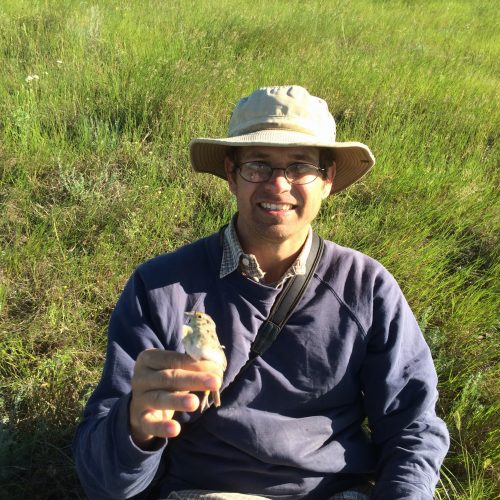Data: 27 de novembro de 2019
Date: November 27th, 2019
Hora: 13:00
Time: 01:00 PM
Local (Room): Sala de Defesa, Bloco O, Prédio da Pós graduação, Instituto de Biologia, Unicamp, Campinas, São Paulo, Brasil

Modelando mitocôndrias: especiação e a hipótese do barcode
O material genético mitocondrial, ou mtDNA, é amplamente utilizado para construção de filogenias e como barcode para identificação de espécies. Evidências recentes da coevolução com o DNA nuclear, associadas ao fato de que a respiração depende de genes procedentes dos dois DNAs, levaram à hipótese de um papel mais fundamental na especiação. Neste seminário, mostrarei meu trabalho sobre a interação genética entre os DNAs mitocondrial e nuclear em um modelo baseado no indivíduo para populações espacialmente distribuídas. Nesse trabalho, estudamos os efeitos da interação mitonuclear na especiação e as assinaturas que surgem nas filogenias resultantes. Também investigamos a influência dessa interação na correspondência entre as similaridades do mtDNA e a classificação das espécies, testando a hipótese do barcode pela qual o mtDNA pode identificar espécies unicamente. A análise dos resultados do modelo mostra os efeitos da seleção no processo de especiação e como os padrões genéticos recentes fornecem a história ancestral das espécies.
Débora Princepe é uma física interessada em modelos ecológicos e genéticos para populações em evolução e física de sistemas complexos. Atualmente, ela investiga a coevolução dos materiais genéticos mitocondrial e nuclear e a influência dessa interação genética na dinâmica evolutiva das populações. Débora recebeu seu diploma de bacharel em física (2011) e seu doutorado em física (2018) pela Universidade Estadual de Campinas com uma tese sobre dispositivos semicondutores optomecânicos ativos. Após o doutorado, migrou para a física teórica, estudando problemas em ecologia e evolução com apoio de matemática, física e simulações. Atualmente é pós-doutoranda no Instituto de Física da Unicamp.

Modeling mitochondria: speciation and the barcode hypothesis
The mitochondrial genetic material (mtDNA) is widely used for phylogeny construction and as a barcode for species identification. Recent evidence of coevolution with the nuclear DNA, supported by the fact that respiration depends on genes of both sources, led to the hypothesis of a more fundamental role in speciation. In this seminar, I will show my work in modeling the genetic interaction between mitochondrial and nuclear DNAs in an individual-based model for spatially distributed populations. We studied the effects of the mitonuclear interaction in the speciation and the emergent signatures in the resulting phylogenies. We also investigated the influence of this interaction in the correspondence between mtDNA’s similarities and species classification, testing the barcode hypothesis that the mtDNA can uniquely identify species. Analysis of our results leads to an understanding of the effects of selection in the speciation process, and of how recent genetic patterns provide the ancestry history of the species.
Débora Princepe is a physicist with an interest in ecological and genetic models for evolving populations and physics of complex systems. Currently, she investigates the coevolution of the mitochondrial and the nuclear genetic materials and the influence of this genetic interaction in the evolutionary dynamics of populations. Debora received her bachelor's degree in Physics and her Ph.D. in Physics from the University of Campinas with a thesis on active optomechanical semiconductor devices. After the thesis, she moved to Theoretical Physics, dealing with questions in ecology and evolution with support of mathematics, physics, and simulations. She is currently a postdoctoral fellow at the Physics Institute in Unicamp.





